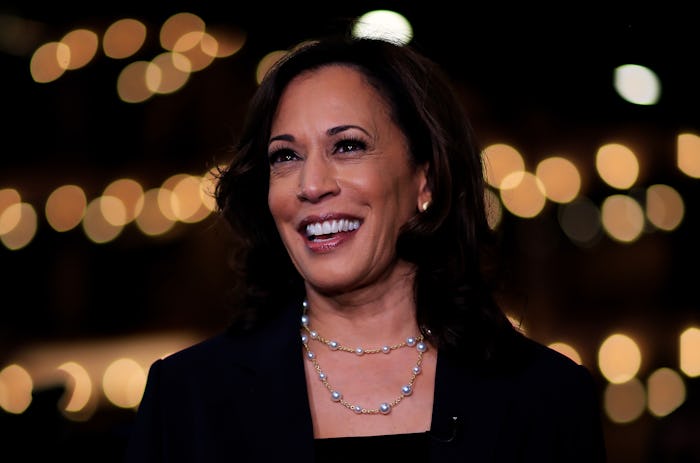News

Some People Have Concerns About Kamala Harris' Student Debt Forgiveness Plan
In the months leading up to the 2020 presidential election, student loan debt forgiveness is proving to be a huge topic of discussion, with many Democratic candidates presenting their own plans on the issue, including California Sen. Kamala Harris. And after hearing about Kamala Harris' student debt forgiveness plan, some people have questions about whether it could actually work.
Over the weekend, Harris announced that, if elected, she would "reduce the opportunity gap" by investing billions of dollars in STEM programs at historically black colleges and universities, or HBCUs, and minority serving institutions. Harris also wants to tackle student debt for Pell grant recipients as long as they "start a business that operates for three years in disadvantaged communities." In her plan, she will give college graduates up to $20,000 and will defer all of their loans, interest free during their business formation period.
In case you didn't know already, Pell grants are federal grants awarded only to undergraduate students that typically display "exceptional cases for financial need," according to the Department of Education. These grants do not have to be repaid, but typically don't cover the full cost of tuition. These amounts change yearly, and recipients get a certain amount based on their cost of attending their school, status as a student, and other major factors.
Although Harris' intentions are noble, some people on Twitter believe she's asking a lot out of college graduates. Starting a business is by no means easy, especially directly out of college, and people are very aware of that. Some users have already taken to the website to point out the flaws in Harris' plan, especially when it comes to dealing with Pell Grants, which can cover almost nothing, depending on what college you attend, according to US News & World Report.
Many people are pointing out that in the grand scheme of things, $20,000 isn't a lot of money — especially when it comes to paying back your college education and starting a sustainable business that must be operated for at least three years. The costs of both of these things are likely to be more than just $20,000.
One person tweeted: "Pell grant recipient here to say that I most likely will not have the funds to start a business ... because my family is economically disadvantaged...which is why I qualified for Pell...and still had to take out loans."
"Let me get this straight: So someone has to start a business that very well may fail in an undervalued neighborhood,draining money and resources so they can have one debt cleared all while gaining another possibly bigger debt?!" someone else commented. "Why does there have to be strings attached?"
"Girl with what money," someone joked.
One commenter penned: "This is trash. Everyone with student loans didn’t receive a pell grant, and everyone with student loans does not want to start a business NOR can everyone with student loans afford to start a business."
Some college graduates might not even see this student loan forgiveness plan as much of a deal at all, especially if they feel like the odds are stacked against them when it comes time to starting a new business. The startup failure rate is around 44 percent, according to Forbes, and even if the business does succeed, it isn't cheap. About a third of small businesses get started with less than $5,000, but the average businesses requires $10,000 of start up capital, according to Fundera. This, combined with student loan debt can seem daunting, especially since the average amount of student loan debt for a recent college graduate is $30,000, on average, according to USA TODAY.
As for students of color graduating from HBCUs (like the ones that Harris is targeting), the odds are even worse. Around 85 percent of black bachelor's degree recipients carry student debt, according to CNBC, and they carry more than the average student — the average black borrower owes closer to $34,000 in debt when the leave college, according to CNBC. When you look at numbers like these, the criticism towards Harris' plan seems pretty valid.
That being said, there is more to Harris' plan as she noted on Sunday. "I want to thank everyone for your feedback and clarify some confusion," she penned on Twitter. "We have an opportunity gap in our country, and one thing we need to do is support Black entrepreneurs. I have a plan to do that on multiple fronts."
Harris added, "Student loan relief for Pell Grant recipients is just one component of our plan to reduce the opportunity gap for Black entrepreneurs—along with $12 billion in direct capital. We can ensure Black entrepreneurs have a real shot at starting small businesses."
As Harris noted, she has a comprehensive plan to tackle student loan debt, with the ultimate goal of supporting black entrepreneurship and deserving communities. And hopefully, the presidential candidate will get the chance to address her plan at the second 2020 Democratic debate this upcoming week.